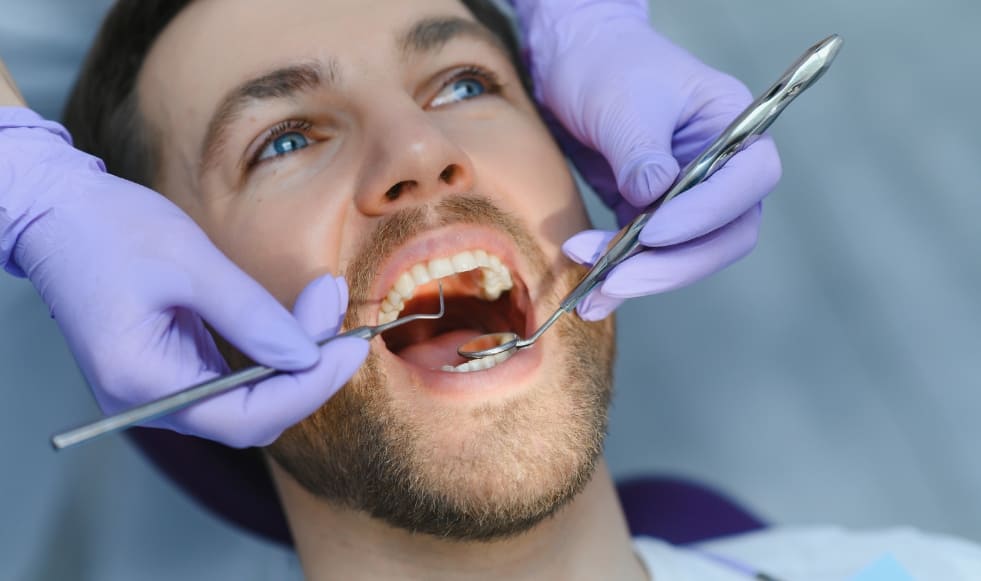Periodontitis: How is it treated?
Do you have swollen, irritated, or painful gums? Periodontology is the discipline that deals with identifying and treating issues that affect the periodontium, which includes the tissues supporting the tooth: gums, alveolar bone, root cementum, and periodontal ligament.
One of the main diseases in this field is periodontitis, commonly known as gum disease.
What is periodontitis?
Periodontitis, or gum disease, is one of the most common diseases affecting the supporting tissues of the tooth. Often, this condition manifests itself with mild and constant discomfort, which can be easily dismissed by the sufferer.
In advanced stages, periodontitis can severely compromise the supporting tissues, leading to tooth loss.
What are the symptoms of periodontitis?
In the early stages, this disease presents with:
- Swollen and irritated gums
- Bad breath
- Bleeding gums
- Tooth sensitivity
In advanced stages, the following symptoms may occur:
- Pus
- Pain
- Tooth mobility
- Gum recession
How is periodontitis treated?
Periodontology generally involves non-surgical treatment with thorough dental cleaning or, if necessary, can necessitate surgical treatment.
In instances of the first case, deep cleaning or curettage is performed to remove the pathogens. This therapeutic approach is useful when the disease is still in its early stages.
When deep periodontal pockets are present, surgical intervention is necessary to remove tartar and infected tissues. Subsequently, root polishing is performed.
The surgical procedure is carried out under local anesthetic, ensuring that the patient does not experience any pain or discomfort.
How to prevent periodontitis?
To prevent periodontitis, it is imperative to undergo professional dental hygiene sessions at a dental clinic, approximately every six months.
Additionally, proper dental care at home after each meal is crucial. Finally, it is essential to not neglect your mouth, paying attention to small symptoms and constant discomfort, and scheduling an appointment if something is amiss.
If you notice swollen gums or other persistent discomfort, do not hesitate to contact our clinic for a check-up appointment.

EXPLORE YOUR SMILE
Discover a new way of smiling and living your day, with confidence
